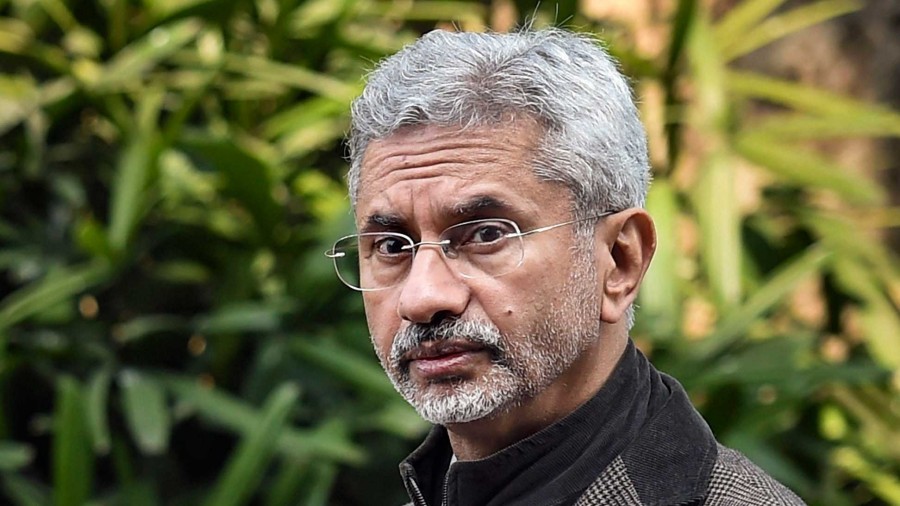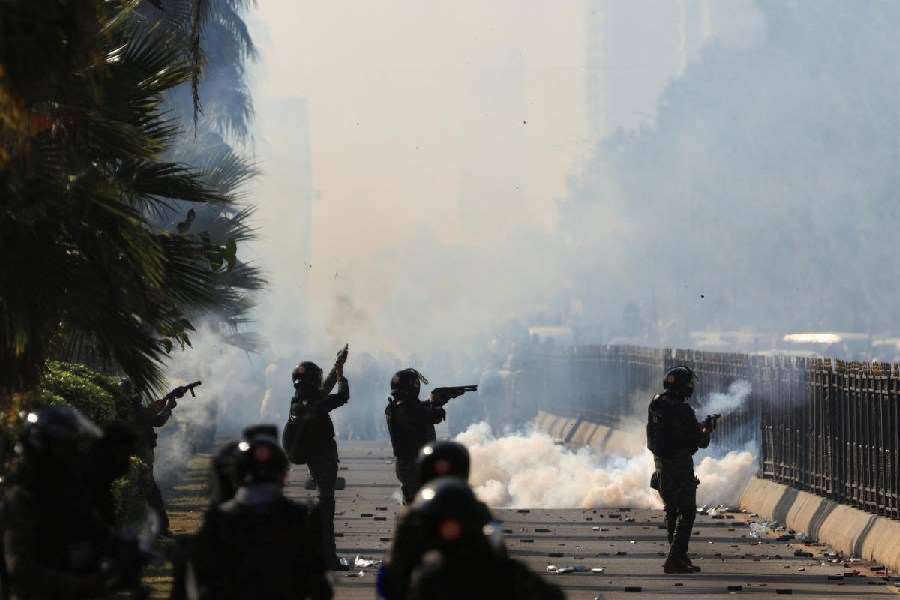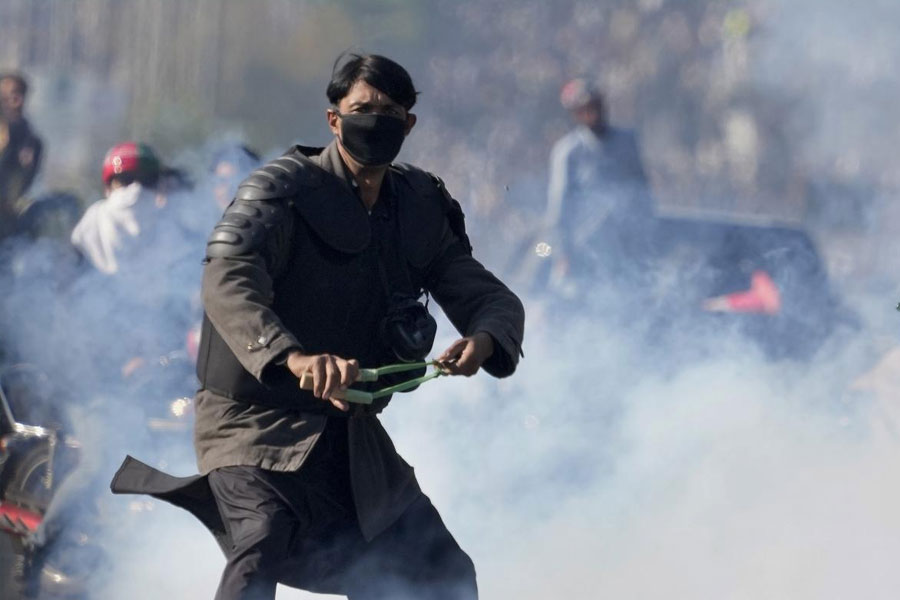India on Tuesday warned that the “edge” of the warfare in Afghanistan, if left unattended, will be deeply felt not just in that country's neighbourhood but well beyond, and emphasised that legitimacy cannot be derived from mass violence, brutal intimidation or covert agendas.
In an address at the inaugural session of BRICS academic forum, External Affairs Minister S Jaishankar also said that the warfare in Afghanistan has "sharpened the challenge" of terrorism and therefore, all stakeholders are in the quest for a clear, coordinated and undifferentiated response to terrorism.
In his virtual address, he said structural inertia, competitive gridlocks, uneven resourcing and skewed navigation have disadvantaged the multilateral institutions, resulting in certain “gaps”.
“Terrorism thrives in some of these gaps. Its nursery lies in conflict-ridden spaces made fertile for radicalisation by malign players, including states. The transition in Afghanistan that we are seeing today and the warfare that has yet again been forced upon its people has sharpened this challenge.
“Left unattended, its edge will be deeply felt not just in Afghanistan's neighbourhood but well beyond,” the minister said.
“We are therefore all stakeholders in the quest for a clear, coordinated and undifferentiated response to terrorism. In the 21st century, legitimacy cannot be derived from mass violence, brutal intimidation or covert agendas. Representation, inclusion, peace and stability are inextricably linked,” he added.
The Taliban has been making rapid advances across Afghanistan by resorting to widespread violence since the US began withdrawing its troops on May 1. The US has already pulled back the majority of its forces and is looking to complete the drawdown by August 31.
Jaishankar also called for reform of the multilateral institutions saying an “updating and recalibration” of the post-World War II multilateral architecture cannot be postponed any further.
The pandemic and the normative breakdown in its wake have "rudely" reminded us that institutions built to tackle problems of the 1940s desperately need to be upgraded and made fit-for-purpose for our century, he said.
He said an expansion of the permanent membership of the UN Security Council is a necessary ingredient but by itself, it is not sufficient.
“Multilateral institutions have been disadvantaged by structural inertia, competitive gridlocks, uneven resourcing and skewed navigation. The proliferation of new and smaller platforms, including of plurilateral and regional groups, is, therefore, a response to such felt gaps,” he said.
“BRICS (Brazil-Russia-India-China-South Africa) itself was actually among the earliest in this regard. Too often, we obsess with one or the other response; more effort and action is actually required to fill the gaps,” Jaishankar said.
On dealing with Covid-19, he talked about the imbalance between the emphasis on intellectual property rights in the pharmaceutical industry and the meeting of public health goals.
Left untouched, the current practices will only delay the elimination of the pandemic by several years, he said, and added that “this is simply not acceptable. But beyond health is a larger economic lesson for the world from the pandemic”.
Jaishankar said the creation of more reliable and resilient supply chains is vital to infuse greater confidence in the global economy and in fact to de-risk it from future pandemics.
The global South is particularly vulnerable in that regard. Investments must diversify to provide a certain assurance of sustainability for livelihoods, for families and communities, and of course for the natural environment, he said.
About BRICS, he said its birth was an implicit recognition that the post-war order had peaked and emerging economies needed to step up to craft a new developmental framework.
He said BRICS was a response to the search for diversity; in many ways, it was accurate anticipation of multipolarity.
“So, let us, therefore, remember that counter-dominance instinct and principled commitment to multipolarity in all forms political and economic, academic and institutional, social and cultural is written into the DNA of BRICS,” Jaishankar said.
He said it was in this spirit of independence and complementarity that India co-founded BRICS.
He said India is confident that this sentiment will continue to define not just BRICS but the larger template for coming decades of the 21st century.
BRICS is a statement of global rebalancing that underlines its essential diversity and pluralism, he added.
The external affairs minister also said India's presidency of BRICS is underpinned by four pillars — reform of the multilateral system; counter-terrorism cooperation; technological and digital solutions for sustainable development goals and enhancing people-to-people cooperation.
“These pillars may seem abstract or even perennial, but each one of them actually has an explicit, real-world meaning,” he said.
In his address, Jaishankar also talked about emerging technologies, adding, digital technology and the energies of the internet, are a force multiplier in any avenue of human endeavour.











